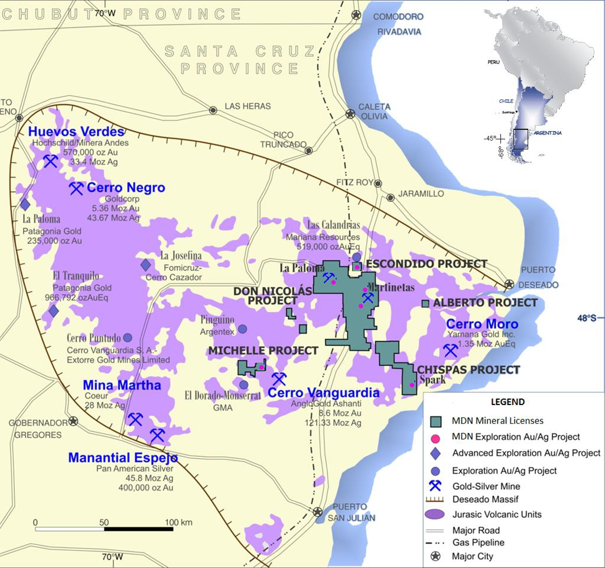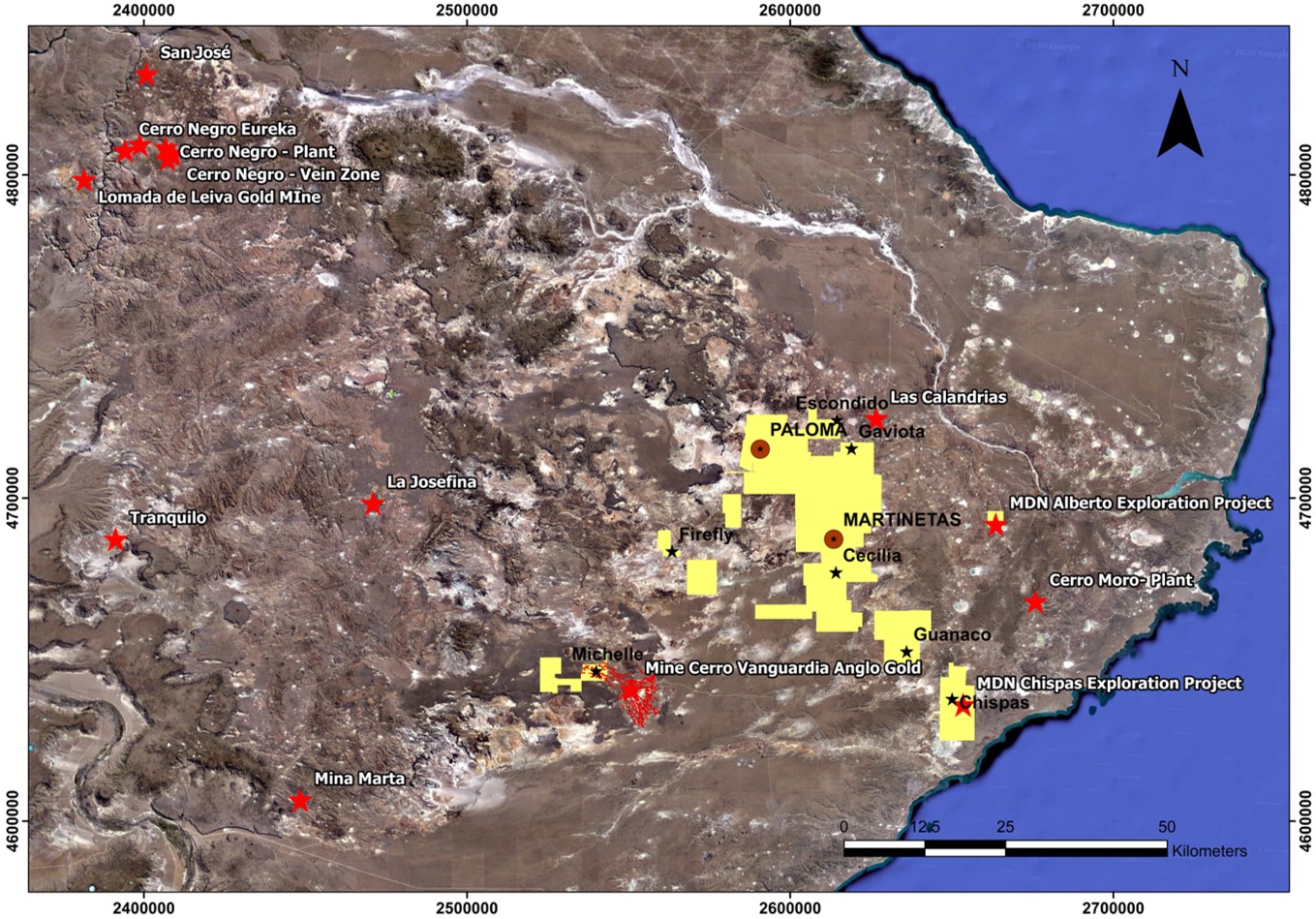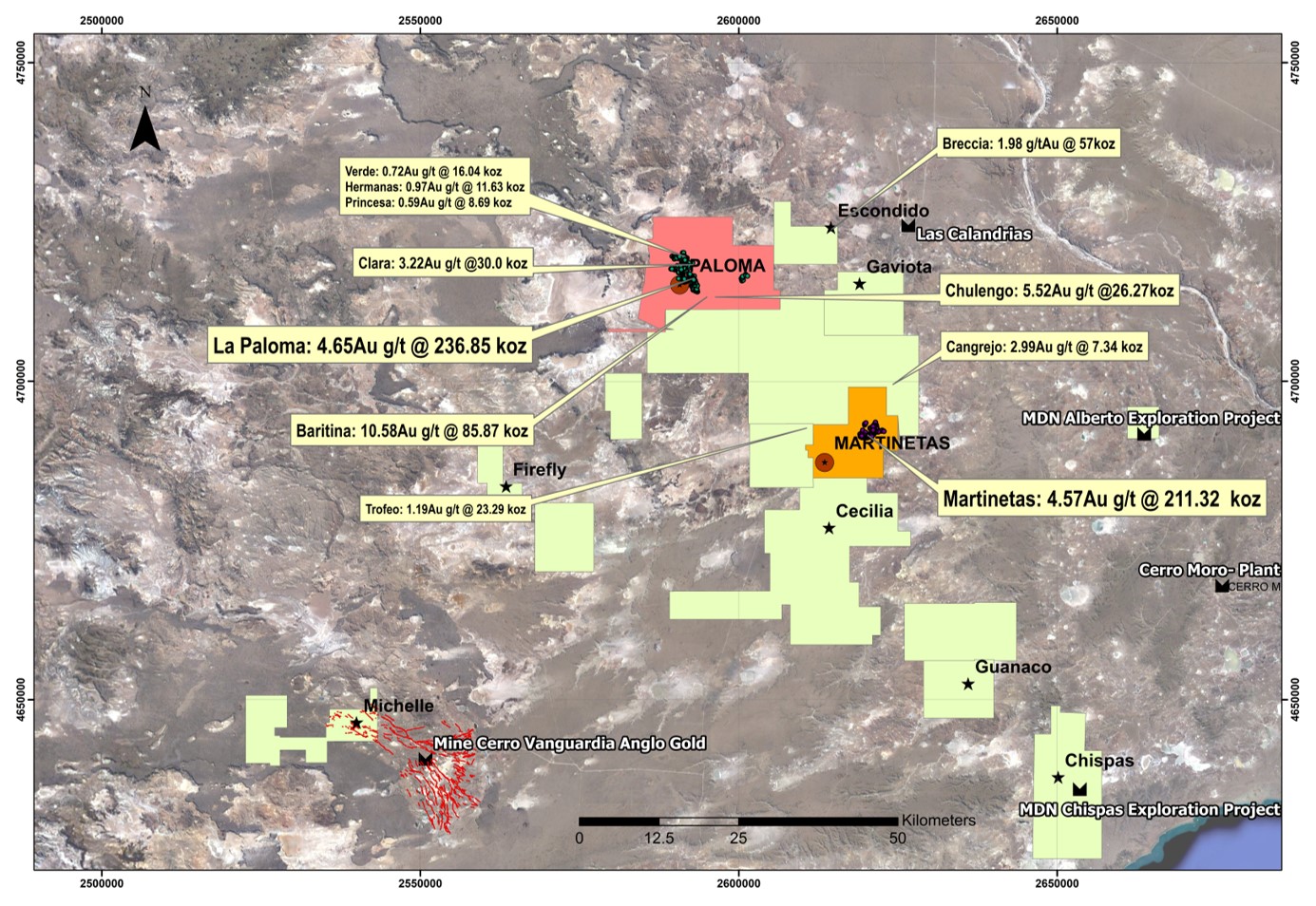MINERA DON NICOLAS
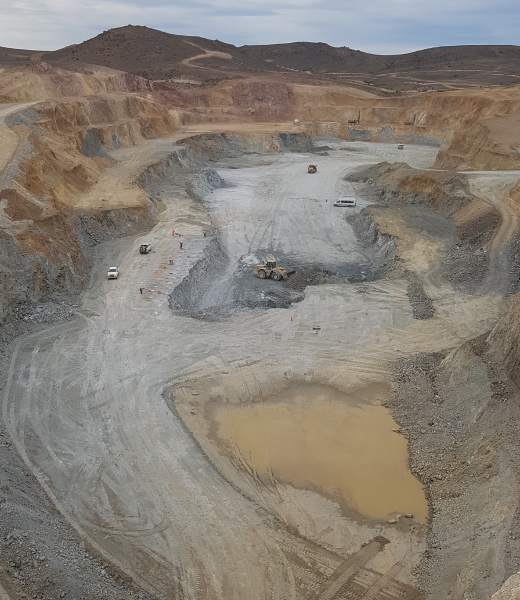
Location
Santa Cruz, Argentina
Ownership
100%, 333,400 ha concession package
Status
Operating Mine/Expansion stage
Deposit Type
High grade epithermal
Production: 53,672 GEO 2022, AISC $1,145/oz Q1 2023
Infrastructure
Very accessible, skilled labor, water, power, paved roads
Annual production
Q1 2023 AISC in $USD
%
Owned by Cerrado
Targeted Annual Production By 2025
Target AISC in $USD
Underexplored concessions
Property Summary
The Minera Don Nicholas property (“MDN”) is 100% owned by Cerrado Gold Inc and is located in the mineral rich Deseado Massif in the province of Santa Cruz, totalling 333,340 ha’s of concessions.
MDN is producing operating mining from two separate open pit areas, La Paloma and Martinetas. Which in turn feed a central 1,000 tpd carbon in leach (“CIL”) gold recovery plant.
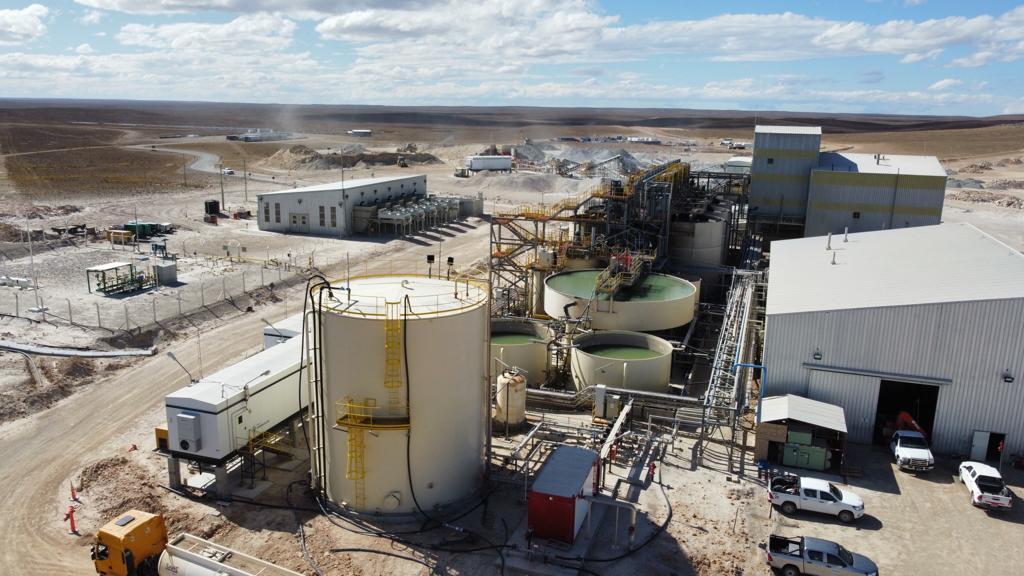
Throughout the concessions and 333,400 ha hectares the MDN operation consists of over 10 separate deposits discovered to date and a proliferation of priority targets yet to undergo significant exploration.
Geological Description & Exploration Program
The Deseado Massif hosts numerous Middle to Late Jurassic age geothermal and epithermal features represented by siliceous and calcareous chemical precipitates from hot springs, hydrothermal breccias, quartz veins, and widespread hydrothermal silicification.
Gold and silver mineralisation is typically hosted in low sulphidation, epithermal deposits where mineralisation occurs within sub-vertically oriented quartz-breccia veins.
MDN is situated within the world renowned Deseado Massif where the underlying geology of the region is dominated by rhyolitic and andesitic volcanic and tuffaceous volcaniclastic lithologies of Middle to Upper Jurassic age (130 to 170 ma).
The Deseado Massif region is host to several multi-million ounce epithermal gold and silver deposits including Cerro Vanguardia (Anglo Gold Ashanti), Cerro Negro (Newmont GoldCorp), Cerro Morro (Yamana) with most discoveries major discoveries as recent as 1990’s onwards.
At La Paloma, the Sulfuro-Esperanza-Rocio vein system comprises narrow, accurate, steeply dipping quartz-breccia veins. The Sulfuro vein is the main deposit and is represented by a single, well developed quartz vein typically 2 to 8 metres (m) in thickness and has a primarily northwest-south southeast orientation with a steep southwest dip. Associated sulphide minerals include pyrite and minor galena and sphalerite.
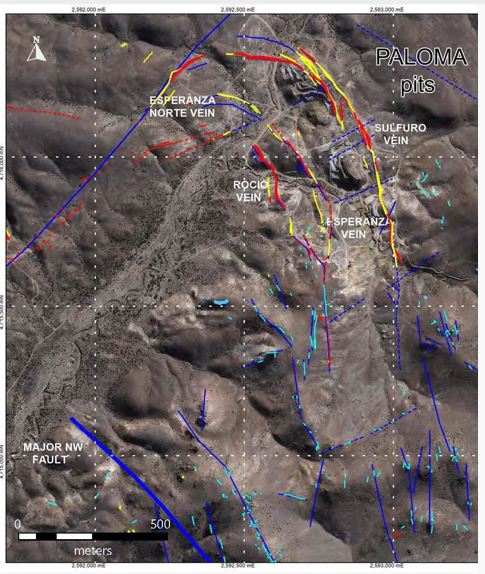
The La Paloma veins remain open-ended at depth. At Martinetas, multiple mineralised structures occur as “vein swarms” with the development of minor intervening stockwork veins and veinlets. A number of resource areas have been delineated at Martinetas. The principal resource is obtained from the Coyote and Cerro Oro deposits which comprise a series of narrow, sub-parallel, anastomosing quartz veins varying in width from tens of centimetres (cm) to several metres, and typically averaging 1 m in thickness.
Mineral Resource
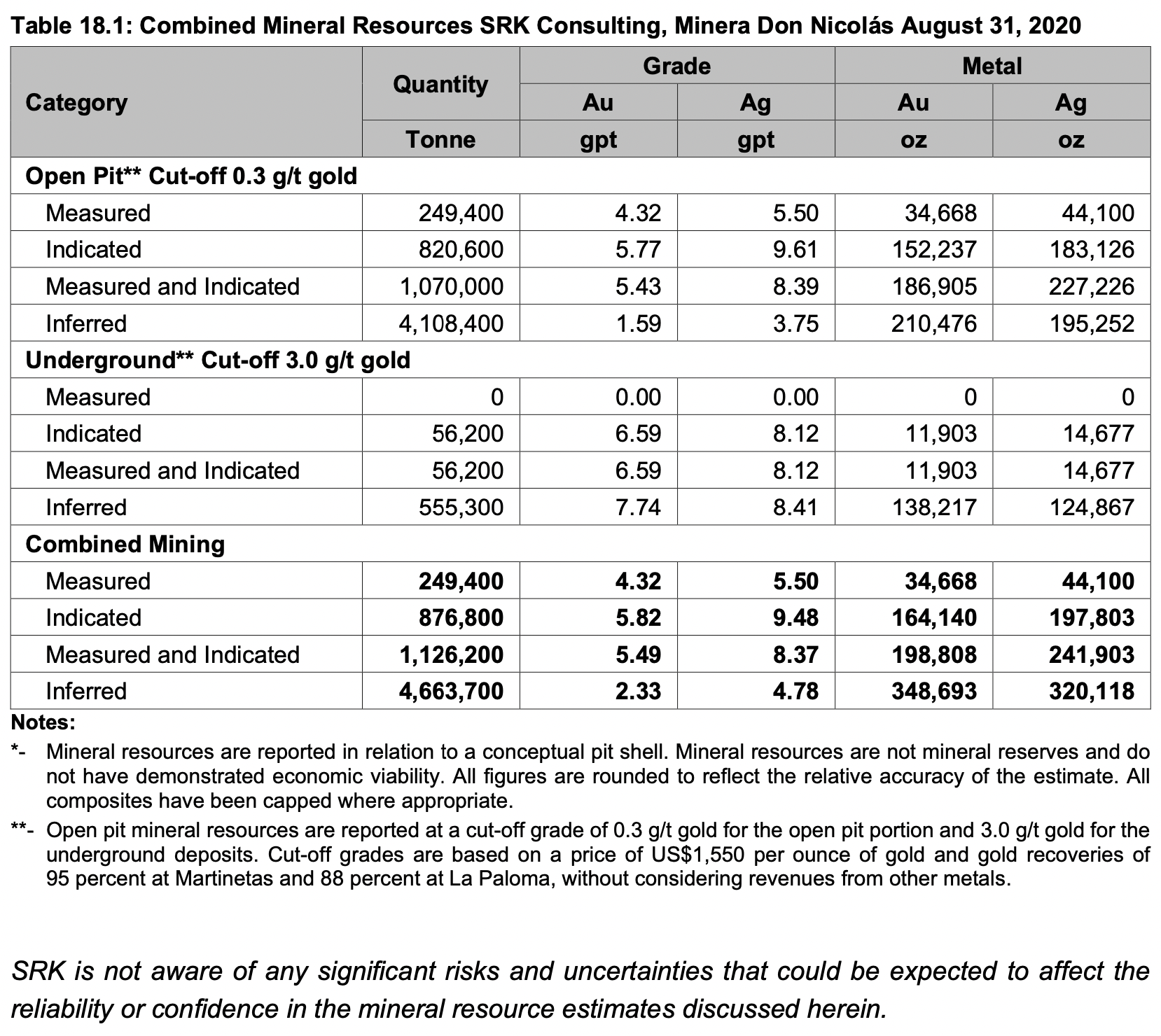
Mining Operations
The mining team consists of 142 employees. Mining is conducted via a company owned and operated mine fleet of drill, truck, excavators and other ancillary mining equipment. Gold mineralization from the La Paloma region is hauled approximately 30 km to the mill using contractors.
Mining operations use traditional drill, blast, haul methodologies at the two main mining zones.
Site preparation commenced in 2015 with removal of waste for the construction of the tailings storage facility. Current mining operations are constrained to high grade open pit material mined directly to the run of mine pad for processing while lower grade material is stockpiled. The potential to heap leach this material is planned to be investigated in the near future and could quickly add to the annual gold production. It is expected that Calandrias and Microndas will serve as the primary heap leach operations. Additionally, underground operations are also currently being investigated. Likely to commence at the La Paloma area and add additional high grade feed to the plant in later years.
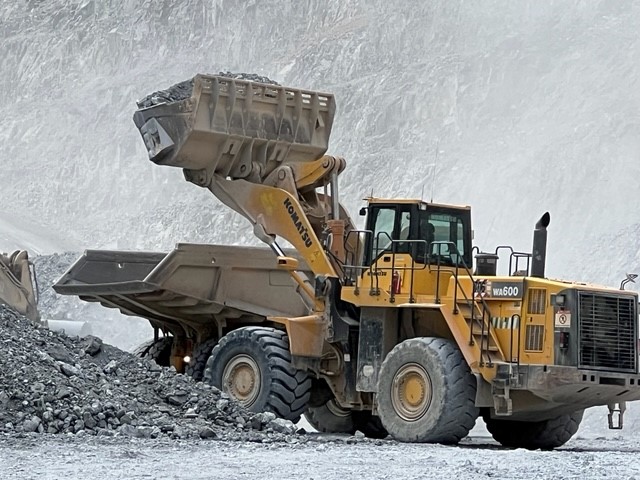
Plant Operations
The process plant is operated and maintained by our own team consisting of 106 employees.
Material mined is processed via a traditional crushing and grinding circuit followed by a carbon in leach circuit for gold recovery. The rated capacity of the plant is 1,000 tpd, however, higher rates of up to 1,200 tpd have been realized. Gold recovery is expected to average over 90%.
Power for the plant and other services is provided by five 1MVA gas fired generators of which 2 are on standby. A diesel back-up generator is also available to supply critical needs

Community
Minera Don Nicolás, along with other institutions, collaborates to improve social conditions in the local community and the province of Santa Cruz. Approximately 73% of the MDN employees are from Santa Cruz.
Community relations at Minera Don Nicolás includes activities with an impact on culture, education, sports, tourism, employment and health, as part of the commitment to the economic and social welfare for the people of Jaramillo and Fitz Roy, the two nearest communities.
Technical Reports
AGP Report
Technical Report for the Las Calandrias Project, Santa Cruz, Argentina, February 2021
SRK Report
